HELENSBURGH has always prided itself that a Prime Minister came from the burgh, despite the fact that he is known as “The Unknown Prime Minister”.
A Conservative, the Rt Hon Andrew Bonar Law MP occupied 10 Downing Street for just 209 days in 1922-23, succeeding the much better known Liberal, David Lloyd George, who had served from 1916-22.
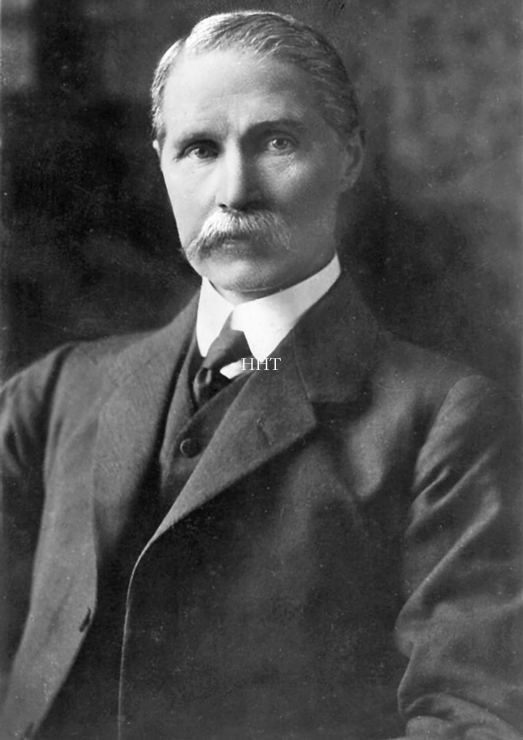 A man of endearing modesty — who once said “if I am a great man, then a good many great men of history are frauds” — he was a popular Prime Minister ill health forced him to retire in May 1923, and he died six months later.
A man of endearing modesty — who once said “if I am a great man, then a good many great men of history are frauds” — he was a popular Prime Minister ill health forced him to retire in May 1923, and he died six months later.
The Andrew Bonar Law story began in Rexton, a small village in eastern New Brunswick, Canada, where he was born on 16th September 1858, the youngest of five children, and he also had two younger half-sisters (the house where he was born is pictured near the end of this article).
His father, the Rev James Law, MA, was a Scottish Free Church minister, his mother Elizabeth a member of the Kidston family of rich merchant bankers which has played such an important part in Helensburgh’s history.
Tragedy struck for the first of several times in his life when his mother died in childbirth when he was only two.
He worked as a boy on his father’s smallholding until, at the age of 12, he went to live with his mother’s Kidston cousins in Helensburgh, where their family home was the now demolished Ferniegair. The following year his father died, and around 1909 his son had a stained-glass window erected in memory of his father in Ballywillan Church, Portrush.
Educated at Gilbert Field School, Hamilton, and for three years at the High School of Glasgow, he left school at 16 and went to work at Messrs William Kidston & Sons, iron merchants, where he remained for 12 years, and also attended Glasgow University night classes which gave him an interest in politics and debating. He learnt debating skills at the Glasgow Parliamentary Debating Association.
At the age of 27 he was a man of simple tastes, a Sunday School teacher at the West Free Church and voracious reader who enjoyed tennis, golf, chess and those great pastimes of students, billiards and darts, and he served on the first committee of Helensburgh Golf Club and was one of the founding members of Helensburgh Lawn Tennis Club.
At the same time he was trying to make his fortune as a partner in a Glasgow firm of iron merchants, William Jacks & Co., Mr Jacks being a neighbour in Helensburgh.
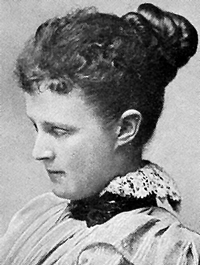 For the next 14 years he prospered as a member of the ‘iron ring’, a group of financiers who bought gold and sold pig iron speculating on future price changes, and in 1899 he was elected chairman of the Glasgow Iron Trade Association.
For the next 14 years he prospered as a member of the ‘iron ring’, a group of financiers who bought gold and sold pig iron speculating on future price changes, and in 1899 he was elected chairman of the Glasgow Iron Trade Association.
William Kidston of Ferniegair was well known in the West of Scotland as a Conservative leader and a champion of the constitutional party in the old Free Church. He encouraged his young kinsman to prepare for a political career.
In due course an inheritance from one of the Kidstons gave him financial independence, and he went into politics.
An active member of the Helensburgh and Gareloch Conservative Association, he frequently spoke at public meetings in the town. He stood as a candidate for Dunbartonshire County Council, but was defeated by Bailie Malcolm.
He entered parliament in 1900 at the age of 42, in the midst of the Boer War, as Conservative and Liberal Unionist MP for Glasgow Blackfriars and Hutchesontown, acquiring a reputation for honesty, fearlessness, and effective speaking — so much so that only two years later he was appointed Parliamentary Secretary to the Board of Trade.
The Helensburgh and Gareloch Times said of him: "As a speaker, Mr Bonar Law's distinguishing characteristics are directness and almost entire absence of ornament. His appeals are directed to the intellect of his audience, not to their passions, and his aim is always to persuade rather than to dazzle."
A Liberal landslide in 1906 cost him his Glasgow seat to Scotland’s first Labour MP, George Barnes, but later that year he won a by-election in Dulwich — where Maggie Thatcher now lives in retirement.
In 1910 he resigned his seat at Dulwich to lead an attack on the North West division of Manchester, one of the strongholds of free trade, was unsuccessful, but returned to the House of Commons in March 1911 as MP for the Bootle division of Lancashire.
Back in 1890 he had met a dark-haired, brown-eyed Dumbarton shipbroker’s daughter called Annie Pitcairn Robley (above right), who was considered a local beauty, and he fell in love at once.
They were married in Helensburgh West Free Church on March 24 1891 by the Rev William Leitch, then set off for a honeymoon in Paris. He was 32 and she was 24.
They set up home in Seabank (below right), a house beside the now closed Clyde Centre, which had originally belonged to his aunt, Miss Janet Kidston, with whom he had stayed for many years.
It contained a magnificent Adam fireplace and inset wall display cabinets, also by Adam, which were a wedding present from the West Dunbartonshire branch of the Conservative Party. Seabank was demolished in the 1950s.
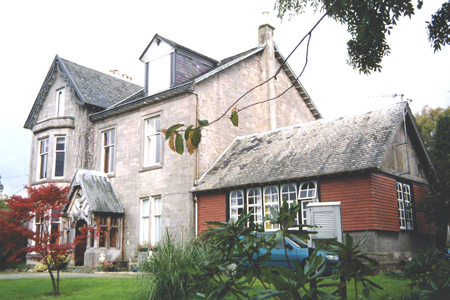 Later they bought the house Kintillo (left) in Suffolk Street — then entered from West Stafford Street — from Annie’s father, Harrington Robley, and he employed famous architect William Leiper to add a billiard room.
Later they bought the house Kintillo (left) in Suffolk Street — then entered from West Stafford Street — from Annie’s father, Harrington Robley, and he employed famous architect William Leiper to add a billiard room.
While resident in the town he was for a time honorary treasurer of the British Workman Public House Company, and a director of Larchfield Ltd.
They sold the house in 1909, moving to London because the pressure of commuting was becoming too much.
They had a very happy marriage, and Annie, after losing their first child stillborn, brought up a family of four sons and two daughters before she died suddenly after the move to London at the age of 42, collapsing after apparently recovering from a gall bladder operation.
It was a shattering blow to Bonar Law, and he was distraught.
Her popularity was shown when many hundreds paid their respects as the funeral procession passed by on its way from Ferniegair to the church and then the cemetery.
Nevertheless he continued his political career, with his sister Mary looking after the children, and in 1911 he won the leadership of the Conservative Party as a compromise candidate, gaining the powerful support of fellow Canadian and Daily Express owner William Maxwell Aitken, later Lord Beaverbrook.
In June of that year he was created a Privy Councillor, his name being included in the list of King George V's Coronation Honours.
He focussed most of his attention on the tariff issue, and also furiously opposed Irish Home Rule.
At the outbreak of the First World War, he offered the Liberal Government the support of his party in a coalition government, which was formed in 1915. He worked closely with the Liberals and developed such admiration for Lloyd George that he even declined the premiership in favour of him.
He was given senior positions in the War Cabinet and became Chancellor of the Exchequer, working well with the leader in a successful political partnership, and this helped the coalition to be re-elected in a landslide following the Armistice.
But the fates had been unkind to the Bonar Law family again, and he lost his two eldest sons fighting in the war in 1917.
On April 19 his second son, Second Lieutenant Charles Law of the 2nd Battalion of the King’s Own Scottish Borderers, was reported missing following the battle of Gaza. On September 21 his eldest son, Captain James Kidston Law of the 60th Squadron of the Royal Flying Corps, died after his plane was shot down in combat in France.
He wanted time to recover from these blows, and he resigned as Leader of the House and Conservative leader. But in the 1918 General Election he returned to Glasgow and was elected member for Glasgow Central.
Other Conservatives were also enthralled with Lloyd George and were considering leaving to join a new party Lloyd George was planning to form. This roused Bonar Law, and he made a crucial and decisive speech at the Conservative Carlton Club which changed their minds and saved the party.
He persuaded them to end the coalition, thus forcing Lloyd George to resign — whereupon King George V invited Bonar Law to form a new administration. He became Prime Minister at the age of 64 years and 37 days.
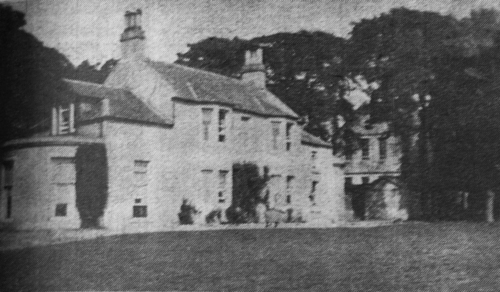 He proposed what he called a ‘Tranquility Manifesto’ in an attempt to help Britain recover from war damage, but he himself, a teetotaller but heavy pipe and cigar smoker, felt increasingly unwell and was diagnosed with throat cancer, forcing his resignation in May 1923 to be succeeded by Stanley Baldwin.
He proposed what he called a ‘Tranquility Manifesto’ in an attempt to help Britain recover from war damage, but he himself, a teetotaller but heavy pipe and cigar smoker, felt increasingly unwell and was diagnosed with throat cancer, forcing his resignation in May 1923 to be succeeded by Stanley Baldwin.
The shortest serving Prime Minister of the 20th century, he died six months later on October 23, leaving estate of £35,736 — a very large sum in those days.
On Saturday November 3 he was cremated in a private ceremony at Golders Green in London. His ashes were taken to the Scottish church of St Columba, Pont Street, and two days later the minister, Dr Archibald Fleming, conducted a simple Presbyterian funeral service.
The chief mourners were his two sons and two daughters, his sister, and his son-in-law, Major-General Sir Frederick Sykes. The coffin was carried by four NCOs from the regiments in whose service two of his late sons laid down their lives, the King's Own Scottish Borderers and the Royal Air Force.
He wanted his ashes to be buried in the family plot beside the north wall of Helensburgh Cemetery beside his wife and sons, but as he was Prime Minister the family agreed that the final resting place of his ashes should be the Nave in Westminster Abbey.
The funeral procession left the church and travelled through central London to the Abbey. There the Prince of Wales represented the King, and was chief pallbearer. The others were Herbert Asquith, the Speaker, Lord Beaverbrook, Lord Balfour, Lord Carson, Lord Fitzalan, Austen Chamberlain, Prime Minister Baldwin and Ramsay MacDonald.
Bishop Ryle, Dean of Westminster, conducted the service, assisted by Precentor the Rev L.H.Nixon. The Archbishop of Canterbury pronounced the Benediction.
The Bonar Law political influence was not quite over, however. His fourth son Richard Kidston Law followed him into politics and the Conservative Party, serving as MP for South-West Hull, and in due course became the 1st Baron Coleraine — the third creation of that title — in 1954.
Comparatively unknown Andrew Bonar Law may have been — Asquith is believed to have said “It is fitting that we should have the Unknown Prime Minister by the side of the Unknown Soldier” — but he packed much into a life tinged with tragedy.
A few months after his death a noble and revealing tribute of a son to his late father was made at the Authors Club in London when Richard Law MP (below right) was the guest of the evening.
Replying to the toast “The Right Honorable Andrew Bonar Law”, Mr Richard Law stressed qualities in the late Prime Minister’s personality that could only have come from the family circle, and perhaps are not to be found in biographies.
“Many people,” he said, “have remarked that it was sad that my father should have died when he did. I agree.
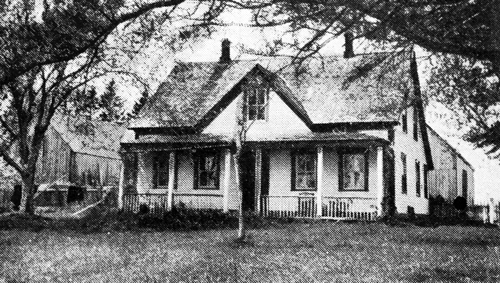 “He did have the unusual faculty of being able to think out a problem a dozen or more moves ahead. Such a quality would have proved very useful in our country’s affairs today.
“He did have the unusual faculty of being able to think out a problem a dozen or more moves ahead. Such a quality would have proved very useful in our country’s affairs today.
“It is extraordinarily difficult for a son to take any kind of objective view of one so close in ties and blood and memory as his own father.
“I regard my father less as a public man than as a human being, and one of the most remarkable human beings I have so far encountered in my life.
“All the time he was in business in Glasgow he was looking forward to the time when he would be able to go into public life and politics.
“He was essentially a very ambitious man. From his earliest youth he wanted to take part in great events and take some part in the shaping of them, but there was a refinement in his ambition, for he wanted to be a prominent man on his own terms.
“Shortly before his death, in one of his few moments when he was confiding, he said to me that anything that had come to him in his life he had never lifted a finger to get.
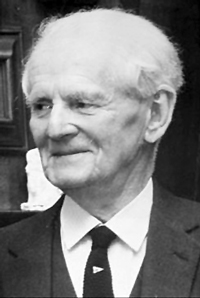 “That was true and a little unfortunate. If he had been a little more pushing, a little bit less self-effacing, it might have been a better thing not only for himself but for his country.
“That was true and a little unfortunate. If he had been a little more pushing, a little bit less self-effacing, it might have been a better thing not only for himself but for his country.
“He was supposed to have been a melancholy man. He was not. He was the most extraordinarily happy person.
“True, he was an effervescent or a buoyant personality. But he had, if any man had, an equipolar or mental balance which did amount in fact to happiness.
“It is true he had very bad patches, and that was because he attached the most extraordinary and extravagant values to human relationships, and when there was anyone of whom he was fond who was part of his life and who died, he was thrown into the most utter despair.
“He had that tenacity of affection which at times made his life a burden to him.
“That attitude towards death is very hard to find in a man with a mind so balanced and reasonable as my father possessed.”
- Kintillo photo by Donald Fullarton.
